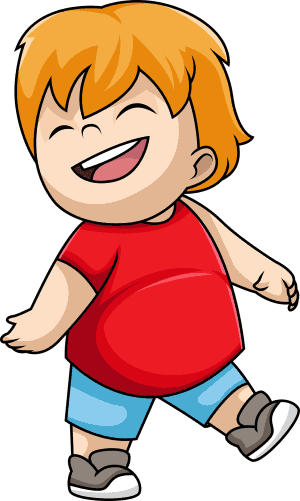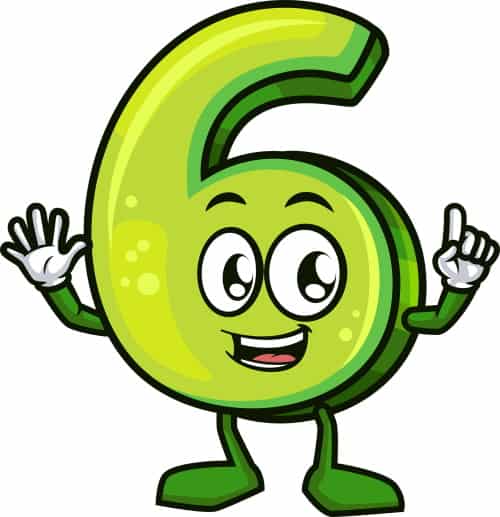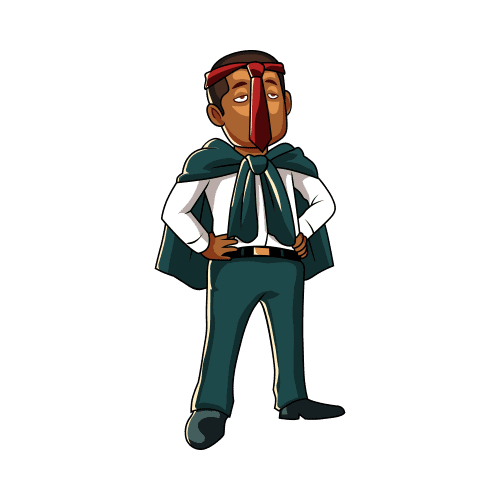
If you have spent any time around a young child or toddler, then you are probably aware of how different their humor tends to be. What adults may find funny is often lost or confusing to those who are just entering the developmental stages and it can be difficult to make your two-year-old laugh.
You can successfully make a two-year-old laugh, as long as you modify your approach to their developmental level. Some tips guaranteed to work are focusing on physical humor, toddler interests, and not being afraid to look silly. Two-year-olds laugh at things that are simple and surprising.
Humor is one of the most important skills a child can learn, and adults have many different ways to help them understand the importance of humor, as well as use it to continue to further their skills. Let’s talk about a few ways you can help a two-year-old laugh and how it can help them grow.
Contents
6 tips to Make a Two-Year-Old Laugh

Now that we have explained why humor is essential to the development of children let’s get into a few ways that you can incorporate more humor into interactions with your two-year-old on a regular basis. These things should be put into their regular routines. These little munchkins love routines.
There is also the fact that breaking these routines with surprise and buildup also delights them, as long as it is the exception and not the rule. When trying to implement these ideas, keep it regular and break the routine infrequently.
Remember that Younger Children Have Different Humor
The most important tip to remember is that smaller children have very different humor than adults or even children that fall into the age range of five to eight. If you do not have any experience with younger children, then experimenting may be a great way to not only understand their personalities but also to understand their humor.
Another idea is to find those that have perfected the art of toddler humor and begin to mimic their tones, facial expressions, and timing. There is much more to humor for these little ones than just the words we say. How, when, and where we say them can sometimes be more important.
If you are still not sure what kind of humor the two-year-old in your life enjoys, take the time to observe them with others, or even just while they are playing by themselves. Not only can it tell you a lot about them, but it can also tell you what they need.
Try Different Types of Physical Humor
Among two-year old’s, the most common type of humor tends to be physical. Many refer to this type of humor as slapstick humor. Since children are gaining some sort of mobility at this age, they are incredibly interested in physical situations.
This also speaks to the fact that the language around them usually is above their level or leaves them out due to subject matter. They get used to watching rather than listening. We aren’t talking to them much of the time anyway. Can you blame them?
Here are a few ways to make your two-year-old laugh using physical humor.
- Try playing peek-a-boo with your child.
- Drawing silly pictures or just doodling.
- Try playing charades or acting like their favorite animal.
These are just a few ideas on how you can incorporate physical humor into everyday interactions with a two-year-old. Making sure that you are actually participating with them is a great way to help them learn. Sometimes it is more that you are paying attention to them and making an effort to connect with them that will peak their interest.
Engage in What They Think is Funny
Many children are looking up to you as a sort of guide for how to be at this young age. This means that if you think something is funny, they will often think something is funny but are not able to understand it. They are mimicking in order to understand.
This is where a lot of people mess up when it comes to children’s humor.
It would be best if you focused on what is funny to them. Incorporate things they are learning from walking to speaking, even to bathroom humor! Not only will it be relatable to them, but it will also help them gain a better perspective of the world that surrounds them.
As well, try to act out at least with facial expressions and hand movements what you are saying. This will help them quickly understand what is going on and know that the conversation is meant for them. You have to act differently with toddlers than you do with adults before they know to pay attention.
Younger Children Often Look to Adults for Approval of Humor
If you have spent any time with a two-year-old, then you have probably noticed them looking at you after they do certain things. They are hoping that what they think is funny is also funny to you since many children seek approval or validation without even realizing it.
We have all heard the exclamation, “I did it!” This is a call for others to join in and congratulate them. In the same way, when they do something that they think is funny, they will announce it in many different ways. Sometimes it will be verbally, but sometimes it will be with an overly dramatic pause and stare.
Our son Ronin got us to laugh as a toddler one time when he said his ABCs. At about the F point in the recitation he added “Cookie Monster!” all on his own. We all laughed. Boy did he remember that.
For the next year, at completely random times whether he was talking or someone else was, we would hear, “Cookie Monster!” This would be followed by a long pause and looking at each of us in the room until we reacted. He learned that we laughed once when he said it and held on tight to it like a gold nugget.
To help them build up their sense of humor, make sure that you are acknowledging things that are funny to them. This is an easy way to help them learn what is funny and what is not funny in terms of thoughts, behaviors, and even actions.
Word Play Can Be a Great Humor Idea for Two-Year Old’s
Children often tend to start absorbing and understanding language at this age, which means anything with language can be a great way to make a two-year-old laugh.
- Try combining different words into nonsense sentences.
- Start reading funny books with pictures during playtime.
- Rhyming stories or songs.
Using wordplay can be a great way to help your child learn new words as well as humor. Combining silly words together helps them think outside of the box, which can help further their mental capacity.
Don’t Be Afraid to Look and Be Silly

Talking about all of the tips above is great, but when it comes time to put it into action many parents can feel sheepish—especially out in a public setting. Of course, this is normal. As reasonable, well adjusted adults we have an aversion to making fools out of ourselves in public.
But when it comes to making toddlers laugh, you have to be able to push through that feeling for two reasons:
- First, realize that everyone gets a pass when it comes to playing with kids! You may still turn a couple heads, but odds are likely that those people are just thinking what a good parent or guardian you are for being willing to engage with them on their level.
- Second, recognize how important it is for your toddler to associate humor with adults they respect. Your two year old looks up to you as an adult that they trust. Through your actions, you can show them that a good sense of humor is just another piece of being a responsible adult, and not something to be ashamed or embarrassed of.
It’s that second part that is really important. If you want your kids to grow up with a healthy sense of humor, it’s important to show them that adults (such as yourself) can be respectable and dependable—but still able to let loose and be a bit silly to make people laugh.
What Do Two Year Old’s Find Funny?
When trying to make a two-year-old laugh, the number one thing to consider is the world around them. By making humor relatable to what they are experiencing, it acts as a learning exercise in addition to encouraging play and creativity.
Ask yourself these questions to help understand what may be funny to a two-year-old:
- What are they learning?
- What kind of activities do they do on a regular basis?
- Do they like to look at books or sing songs? The Wonky Donkey by Craig Smith (Amazon linked) is especially funny to little kids because of the silly rhymes. It is also pretty much guaranteed to make the reader laugh too, which is contagious for your two-year-old!
Two-year-olds love silly sounds and noises, and especially love hearing others laugh. Sometimes I will laugh out loud around toddlers and slap my knee a few times. I have learned to sell it as if I really thought something imaginary in the corner is hilarious.
Inevitably the entire group will begin to laugh and some will even fall in the floor. All will be directed at the non-existent thing in the corner that I am pointing at. They want to know what is funny, but will take your word for it at this stage.
While these seem like basic questions, you would be surprised how often they are forgotten and just how important they can really be in young children’s development.
Why is Humor So Important During Developmental Years?
When raising children, humor may not seem like a top priority, but it plays a significant role in your child’s development (Source: MSU). Not only is laughter good for the soul, but research tells us it helps children’s mental health, supports social skills, and is important for other developmental milestones. Humor also helps everyone, including 2-year-olds, learn to not take themselves too seriously.
Here are some extra things you should know about humor and laughter in developmental years.
- Laughter can act as a survival skill for many children.
- 90% of development happens in the first five years of life.
- Smiling and laughter encourage engagement and relationships.
- Humor can be a defense mechanism later in life.
- Humor can enhance a child’s social skills as they age.
- Humor allows children to have different views of the world around them.
Laughter and humor have a significant impact on both mental and emotional growth for children, plus it can be a great bonding experience between the two of you. It provides a direct connection to help the child realize that you are active in their life and that they are on the right track.
Introducing humor and laughter at an early age also helps deter depression, illnesses, and even some physical issues. It can also help with stress, blood pressure, immunity, and bodily functions, even in children.
Final Punchline on Tips for Making A Two (2) Year Old Laugh
While there are a ton of different ways to raise a child, laughter and humor are common in most of them. Not only can humor help your child’s developmental, physical, and emotional skills, but it can also act as a strong bonding experience for both of you. Although many people struggle with making a two-year-old laugh, it is easy.
Make sure that you take the time to know what your two-year-old thinks are funny. Make sure that you are paying attention and actively participating when they try and show you something or make a joke. You can also turn laughter and humor into a learning experience based on what they are learning in their own life.
Additional Sources:
